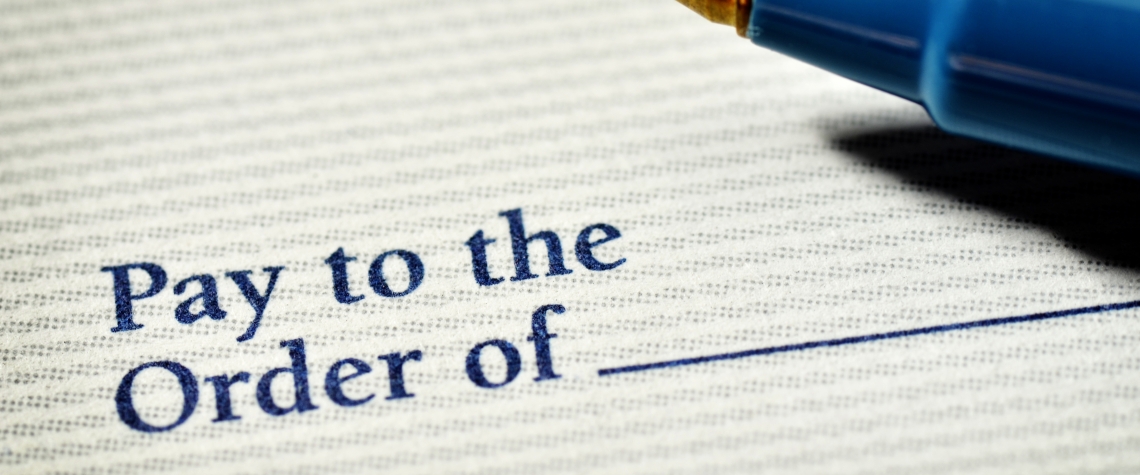
Common Fake Check Scams and How to Avoid Them
These scams are able to fool unsuspecting consumers who may not completely understand that even though a bank account may show the funds as “available”, this doesn’t mean the check has “cleared”. Fraudsters know that banks must make funds available in an account within several days, yet it often can take weeks to discover that the check was fake. When it is, the amount of the fake check deposit is removed from the customer’s account. As a result, they are out the money they sent to the fraudster and because it was sent voluntarily, the bank is not obligated to cover the loss.
These fake checks look real since they often display the names of well-known financial institutions. Some may also look real because they belong to identity theft victims. Scammers will even use fake money orders, e-checks, or cashier’s checks to complete their scheme.
The first step to avoiding these scams is to recognize them.
Common Fake Check Scams
Fraudsters will use variations of these common fake check scams to lure their victims.
- A work-at-home job mails you an advance on the first paycheck. All you need to do is deposit the check and wire them the cost of office supplies that they claim will be shipped to you upon receipt.
- ABC Company is looking for drivers of late-model cars who want to get paid for car wrap advertising. The company sends you the first payment via check. It includes an extra amount for you to wire to the fake wrap installer.
- An online friend or love interest that you have never met in person asks you to deposit a check into your account since they don’t trust their bank to process it correctly. They ask you to return the fund to them via a person to person platform such as PayPal or Venmo.
- Someone wants to buy the item you have for sale in an online marketplace. When you meet to exchange the item, they offer you a check for more than the requested amount. They tell you to deposit the check and give them cash for the difference.
- A mystery shopping company requests you evaluate a well-known retail store that has had complaints about gift cards sold to consumers. You’re instructed to deposit the check sent to you and use part of it to purchase gift cards. The rest of the money is yours to keep, and the gift cards are sent to the fake mystery shopping company.
- You receive notification you’re a sweepstakes winner in a contest you never entered. To claim your prize, you must pay taxes and fees. The company sends you a check for more than your supposed winnings. They instruct you to deposit the check and send them the extra money to cover the taxes and fees.
Regardless of the scam details, the victim is usually out the money for the deposited checks, wired money, or gift cards sent to the fraudsters.
How to Avoid a Fake Check Scam
- Don’t accept checks, money orders, or cashier’s checks from someone who asks you to give some of the money back.
- Don’t accept a check, money order, or cashier’s check from a company or individual who asks you to use the funds to wire them money, send it back to them via person to person or buy and send them gift cards.
- Talk to your bank or the issuing bank to verify authenticity before depositing a check, money order, or cashier’s check you receive from someone you just met.
- If you receive a money order issued by the United States Postal Service (USPS), you can check it for signs of forgery at www.usps.com. They describe specific marks and designs that can quickly let you know if it’s real. You can also contact their Money Order Verification System at 866.459.7822 if you suspect a fake money order.
If you believe you’ve been a victim of the fake check scam, contact an Ephrata National Bank representative as soon as possible to determine if you’re able to recover the money. You may also file a complaint with the Federal Trade Commission and the state’s attorney general. Even if you’re unable to retrieve the money, your complaint can help alert others of similar scams in your area.

